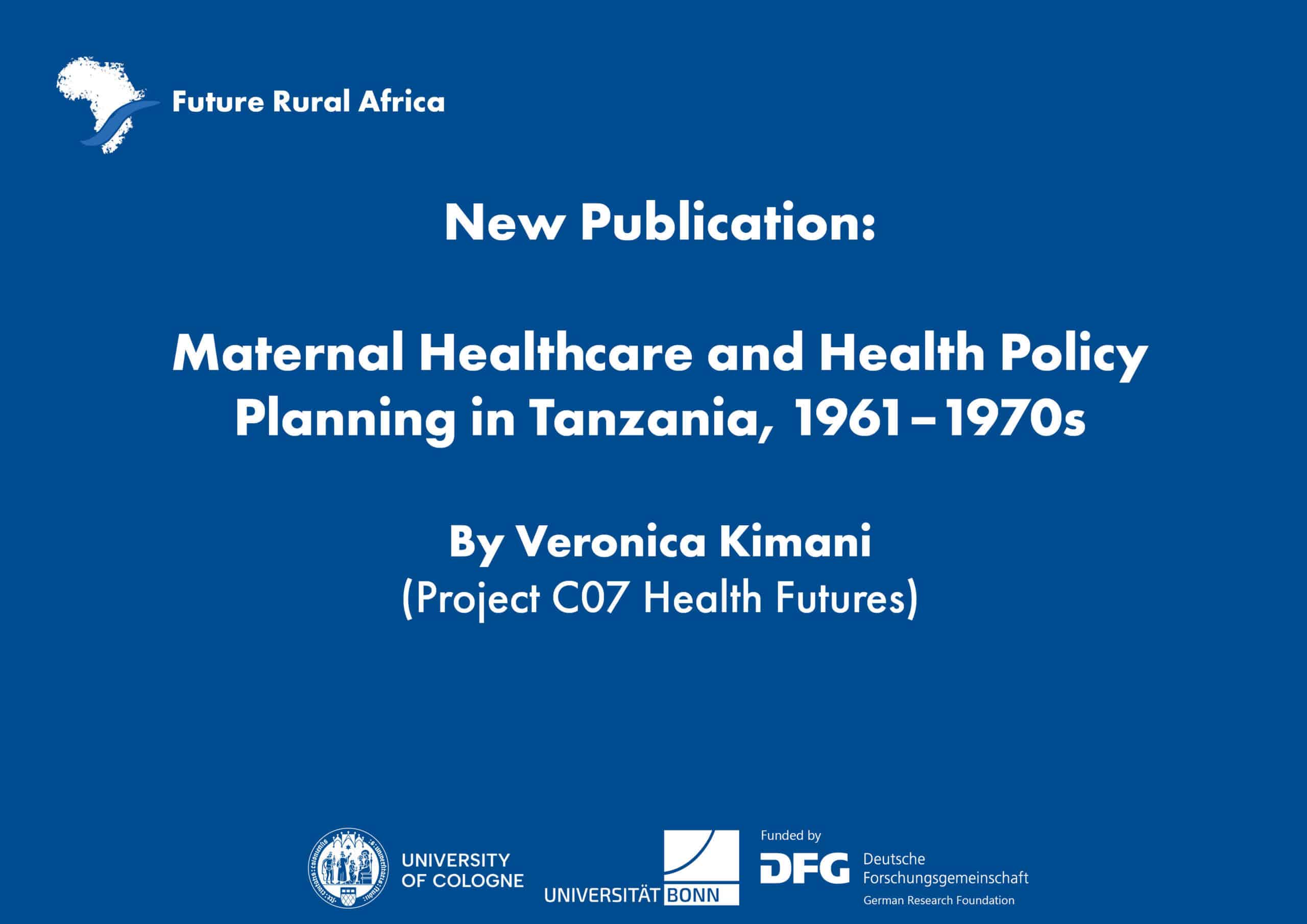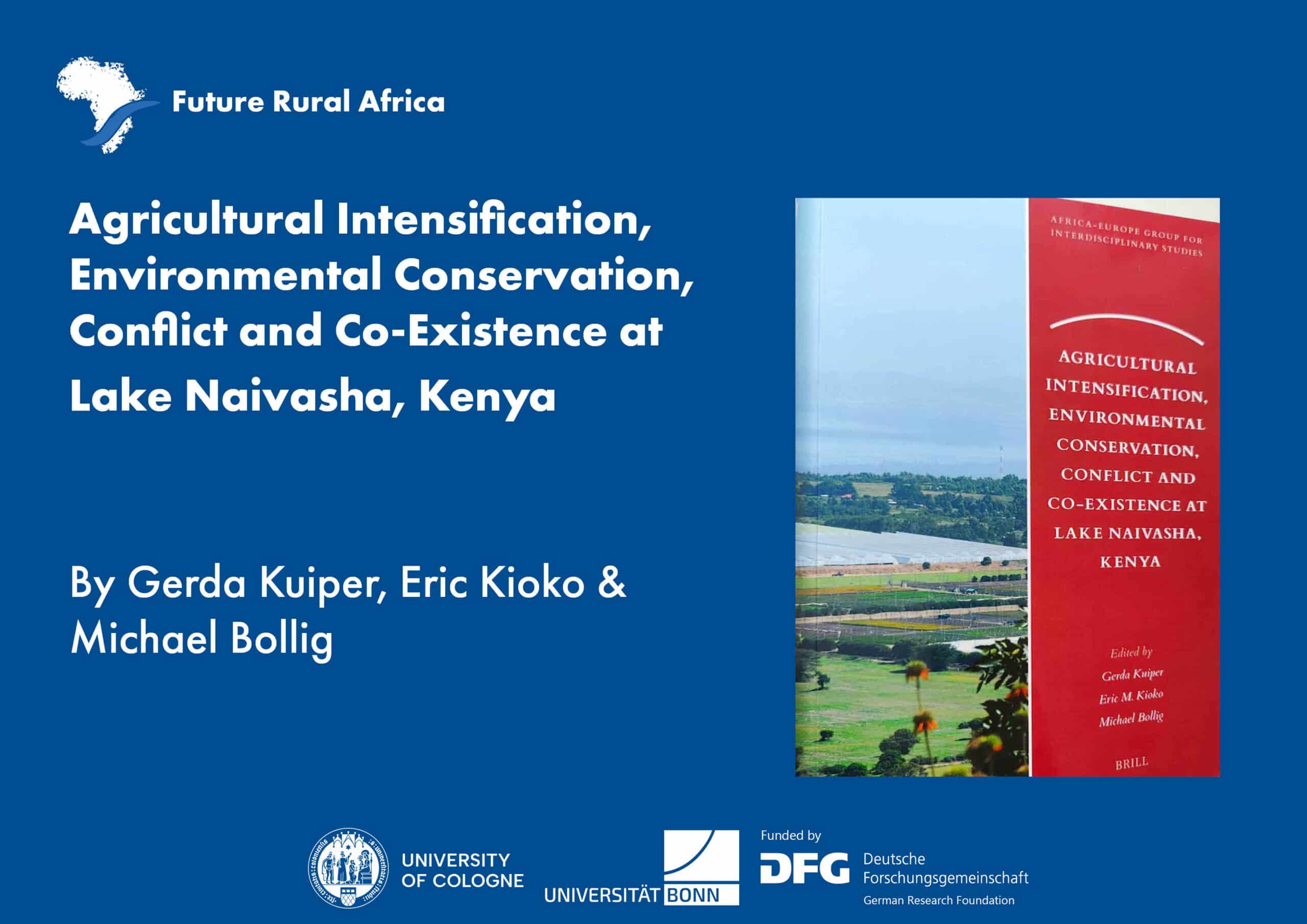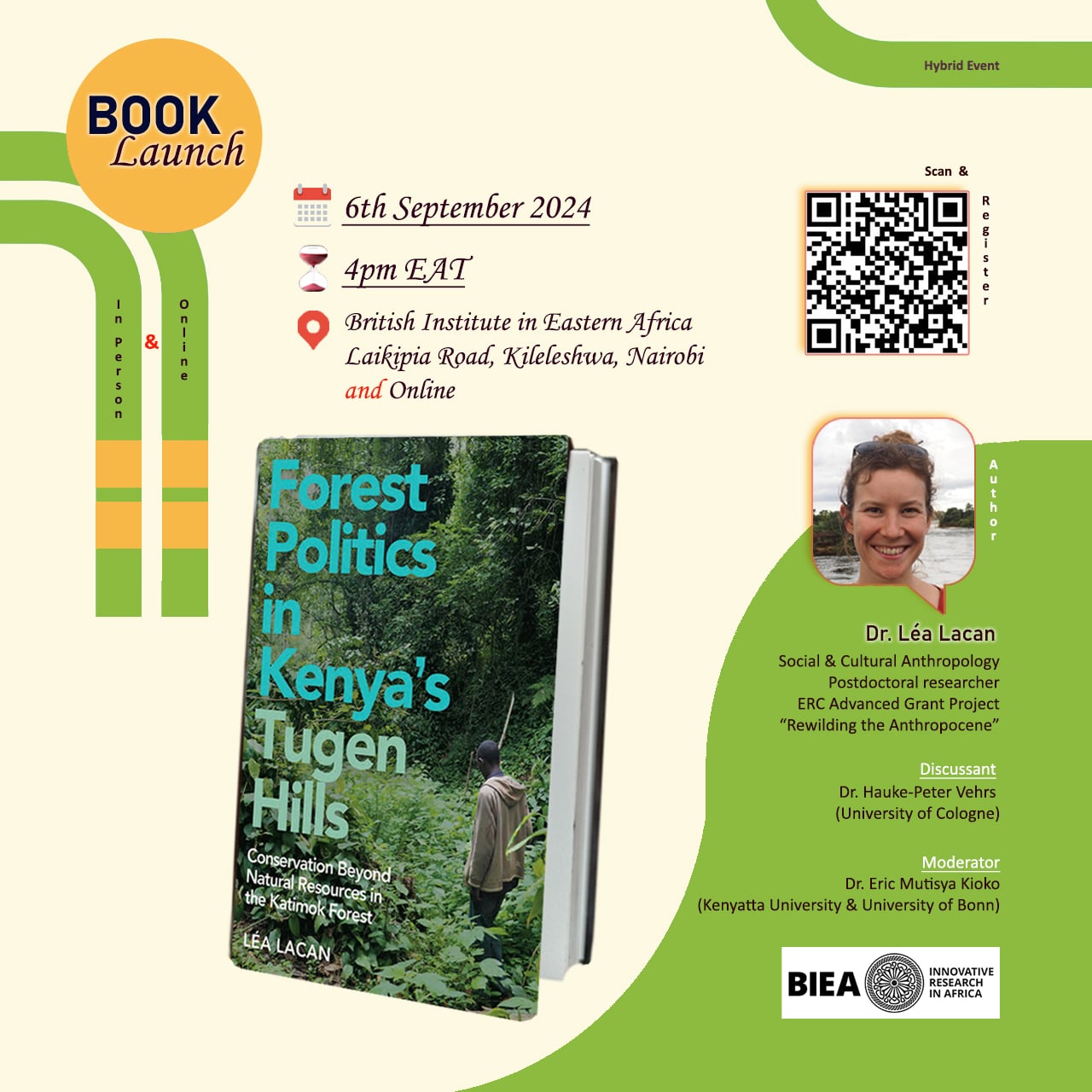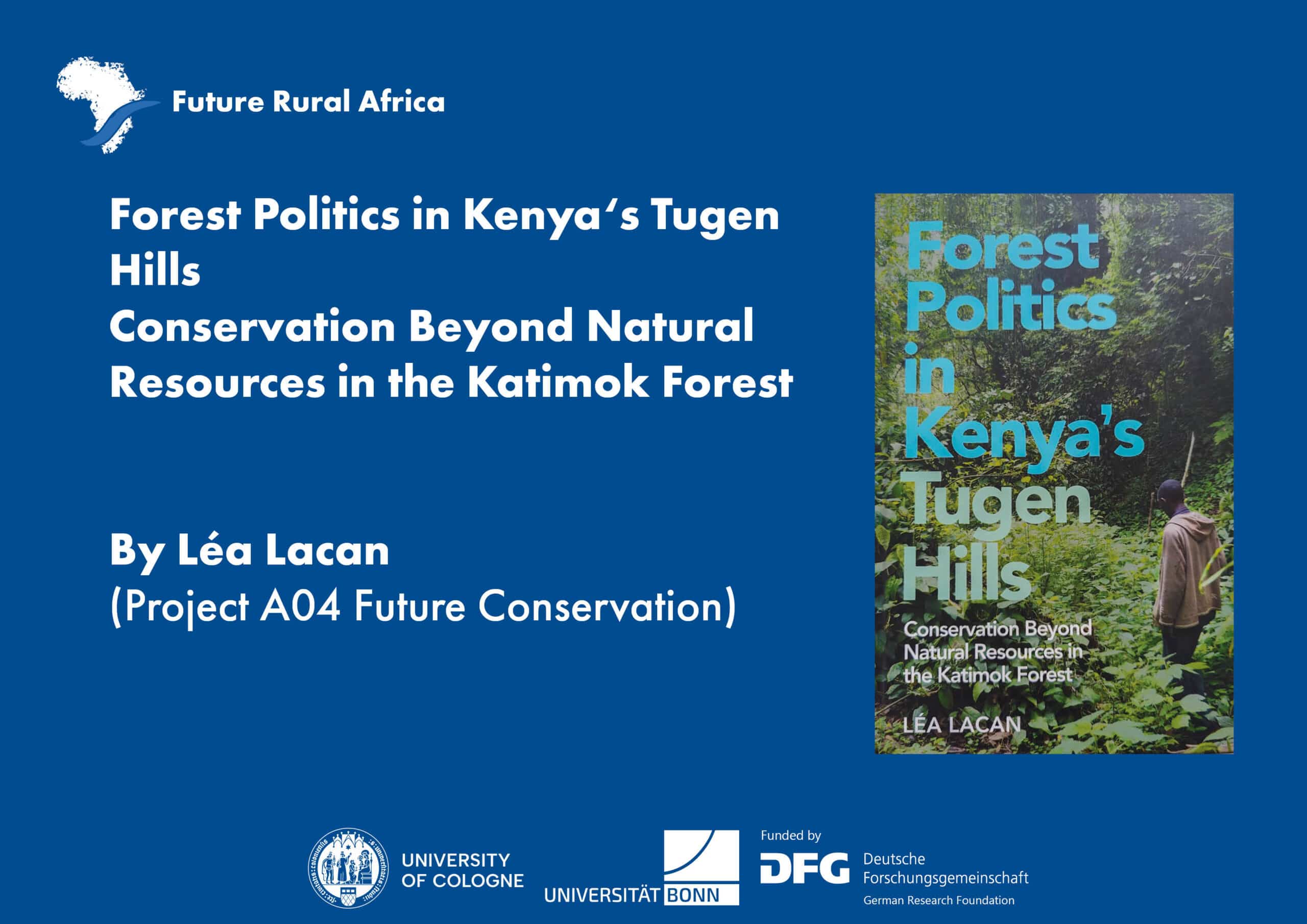Press Release | Aspirations matter: European Journal of Development Research Special Issue: ‘Rural aspirations in Africa – livelihood decisions and rural development trajectories’. Volume 33, issue 4, July 2021
Launch: 8 July 2021| Roundtable Discussion: 26 August 2021. (Register here to participate)
Bonn, Germany, 8 July 2021| Policies, measures, and research on raising the living standard of rural populations in developing countries have often been centered on agricultural interventions. While these initiatives have indeed generated some substantial improvements to livelihoods, they often omit and underestimate one of the fundamental drivers of behavior within rural households and communities, which are their aspirations. As this factor remains under-represented in development undertakings, the European Journal of Development Research Special Issue (Volume 33, issue 4, July 2021) now offers an ensemble of new approaches and research for understanding these aspirations and their implications for development planning. ‘Much of the research the journal publishes focuses on the context of rapid urbanisation and gives insufficient attention to the livelihood trajectory of those in rural areas. I am delighted that this special issue addresses this deficiency and we hope that it inspires other researchers to put their work forward for publication,’ remarked Prof. Spencer Henson, EJDR’s Editor-in-Chief.
The selected publications are a combination of the work on rural aspirations carried out by the following research projects and centers: Future Rural Africa (CRC TRR228), a joint research collaboration between the Universities of Bonn and Cologne, the International Crops Research Institute for the Semi-Arid Tropics (ICRISAT), the Center for International Forestry Research and World Agroforestry (CIFOR-ICRAF) and Bangor University as well as other authors. A virtual roundtable discussion on the Issue and its key findings will be hosted by the guest editors and is due to take place on 26, August 2021. You can register here to participate.
Aspirations matter and differ
The first set of contributions examines future goals and livelihood strategies while highlighting how these link to agriculture, youth, location, and gender. Here the focus is on inter-community diversity, individual perspectives, and the differences within groups of similar demographics. The second set of contributions explores top-down political aspirations as they are translated into large-scale development projects and how they impact on livelihoods, but also how aspirations of individuals are influenced by such large-scale interventions. The papers in this section cover several topics around political aspirations of desirable futures including urban migration, wildlife conservation, large-scale irrigation schemes, growth corridors and value chains, road infrastructure, and megaprojects.
The top-down ‘visions for development’ of the politicians and technocrats who set development agendas are reflections of their own aspirations, in the same way, that local people’s bottom-up views of their future lives reflect theirs. These aspirations may not always align and are sometimes in conflict. One of the three editors, Dr. Dave Harris from ICRISAT and Bangor University, confronts this aspect stating, ‘while the research in this Special Issue illustrates the varied spectrum of local aspirations, it also serves as a reminder that reconciling these diverse aspirations within and between communities is not a simple exercise.’
However, against the backdrop of these complexities, one of the other editors Dr. Kai Mausch (CIFOR-ICRAF), presents some level of optimism in reconciling contrasting interests by saying: ‘Joining the lines of aspirations from the bottom-up and top-down leads to new insights into sources of tensions and possible sources of creating more harmonized visions for the future of rural areas.’
This Special Issue assembles these two lines of research, namely, the focus on individual life goals on the one hand and aspirational politics of large-scale development projects on the other. By doing so, it offers novel insights into the interconnectedness of political aspirations as visions for development and those of individuals as visions for future lives.
While these studies examine ways in which individual aspirations interact with broader government-led attempts to improve peoples’ livelihoods, the authors do not argue that recognition and mutual exchange of visions will solve all conflicts. They still expect developmental processes to be affected by hidden agendas and power relations that might hinder progress for all. However, ‘the success of development initiatives such as megaprojects, depends on how well they match the aspirations of residents,’ concludes Dr. Javier Revilla Diez, the third editor and Principal Investigator in the Future Rural Africa and researcher at the Institute of Geography and Global South Studies Center of the University of Cologne.
-END-
About the Journal
The European Journal of Development Research (EJDR) redefines and modernises what international development is, recognising the many schools of thought on what human development constitutes. It encourages debate between competing approaches to understanding global development and international social development. The journal is multidisciplinary and welcomes papers that are rooted in any mixture of fields including (but not limited to): development studies, international studies, social policy, sociology, politics, economics, anthropology, education, sustainability, business, and management. EJDR explicitly links with development studies, being hosted by the European Association of Development Institutes (EADI) and its various initiatives.
About Contributing Organisations
Collaborative Research Center, Future Rural Africa
Future Rural Africa (CRC TRR228) is an interdisciplinary collaborative research center funded by the German Research Council (DFG) and led by the Institute of Geography at the University of Bonn involving geographers, anthropologists, political scientists, agro-economists, soil scientists, and ecologists from the Universities of Cologne and Bonn as well as cooperation partners in Namibia, Kenya, and Tanzania, to address large-scale land use change and related social-ecological transformations along growth corridors in Eastern and Southern Africa.
ICRISAT
The International Crops Research Institute for the Semi-Arid Tropics (ICRISAT) is an international organization which conducts agricultural research for rural development in the drier parts of the world and provides evidence to policy makers, innovation to partners, and new tools to harness the economic, environmental, and nutritional power of agriculture.
CIFOR-ICRAF
The Center for International Forestry Research (CIFOR) and World Agroforestry (ICRAF) envision a more equitable world where trees in all landscapes, from drylands to the humid tropics, enhance the environment and well-being for all. CIFOR-ICRAF are CGIAR Research Centers.
Bangor University School of Natural Sciences, Bangor, UK.
The School of Natural Sciences conducts world-leading research and teaching across a diverse range of topics based around zoology, biology, forestry, geography, agriculture, and conservation.
Press and Media Coverage
- Future Rural Africa (CRC TRR- 228), Official Press Release: Aspirations Matter: Rural Aspirations in Africa
- University of Bonn Press: Welche Zukunft wünschen sich Menschen in Afrika?
- University of Cologne Press: Save the date: Veranstaltung zu Entwiklungsperspektiven im ländlichen Afrika.
- World Agroforestry Blog post: Our aspirations matter!
- The Conversation Africa: Resolving tensions between global development goals and local aspirations.
- European Association of Development Research and Training Institutes Newsletter: EJDR Special Open Access Issue on Rural Aspiration
*Additional PR support provided by Center for Development Research (@ZEFBonn).






